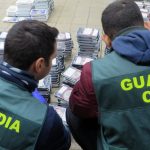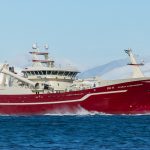Friend of the Sea sustainability certification has become the most requested international aquaculture industry standard, with a total Metric Tons of certified origins three times the metric tons of organic aquaculture products.
While governments in USA, Europe and elsewhere are slowly developing minimum requirements for organic/bio aquaculture certification, NGOs, consumers and other pressure groups express their objection to a definition – the organic one – which seems to carry many potential incongruences, possibly more than the organic agriculture definition.
In this area of uncertainty Friend of the Sea has thrown in a clearer and more reassuring definition, surely more acceptable to consumers: sustainability. Sustainability of the aquaculture plant and its potential impact on the environment. Among the Friend of the Sea requirements: an initial Environmental Impact Assessment; continuous monitoring of water parameters, procedures to limit escapes and by-catches; no GMO; no antifouling paints; use of Friend of the Sea certified fish feed; water, energy, feed, waste and carbon footprint management.
The simple and consumer friendly ‘sustainability’ concept has proved as captivating to aquaculture companies, as the simple but effective Friend of the Sea seal of approval, which is applied to farmed as well as wild-caught products, making justice of both origins, which should be equally promoted when sustainable.
Friend of the Sea certified aquaculture origins – over 350.000 MT – are more than triple the 100.000 MT Organic products estimated by FAO in 2008. Not only: they regard species normally not among those certified as organic, such as kingfish, mulloway, halibut, turbot and mussels. Companies assessed or with certified products operate in all continents: Clean Seas in Australia; Pacific Seafood/Hue Fisheries in Vietnam; Rainbow and Ristic in Costa Rica and Germany; Framgord in the Shetland Islands UK; Leroy and Villa Cod in Norway; Stolt Sea Farm and Frinsa in Spain; Agricola Sterpo and Agroittica Lombarda in Italy; Toralla in Chile, etc..
Friend of the Sea is also the only scheme assessing fish feed, fishmeal and fish oil for sustainability of their origin. The first range of sustainable fish feed has been certified, produced by the French market leader cooperative Le Gouessant. Several fish oil and fish meal producers and origins have also obtain the Friend of the Sea recognition: Omega Proteins and the USA Menhaden fishery; Sovapec & Maromega and the sardines and mackerel fishery in Morocco; Austral and the Peruvian anchovies fishery, the main fishery in the world, catching almost 10% of the total yearly catch worldwide.
“Friend of the Sea is not competing with the bio/organic certification schemes” affirms Dr Paolo Bray – director of Friend of the Sea “we instead want to collaborate toward our common aim: to promote and motivate lower impact practices. “








